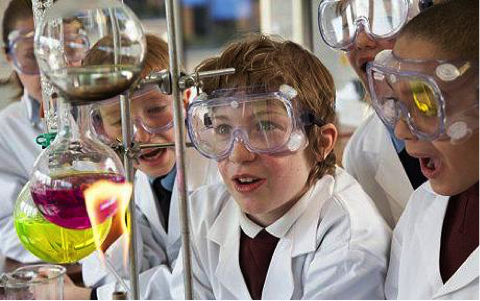“Men love to wonder, and that is the seed of science.” (Ralph Waldo Emerson)

The teaching of science has been close to my heart since I started in the profession but how science is taught and the content that it contains has changed little in the past one hundred years. Science, even ‘combined’ science, is still presented as separate disciplines, physics, chemistry and biology. The subject matter is content led and examinations are generally based on recall and comprehension. However, many of the concepts that underpin science can be applied across all three disciplines.
As a teacher and writer of ‘science’ it has been a significant source of frustration for me to have to work within these pedagogical boundaries when so much of science in the modern world is not confined in this way.
Science teaching should be concept led.
“The important thing in science is not so much to obtain new facts as to discover new ways of thinking about them.” (William Lawrence Bragg)
In most science syllabi there is a token recognition of scientific ‘methodology’ but it is usually taught separate to the concepts, as if the two are not connected. Aligned to this there is little scientific thinking taught overtly in schools. Thinking skills such as reasoning, logic, analysis, synthesis, evaluation, problem solving are the poor relations of recall and comprehension. Scientific thinking was borne out of philosophy but the connection seems to have been lost as education systems all over the world choose to measure what children can remember rather than what they can actually apply.
Science education should have scientific thinking at its core:
- Recall
- Comprehension
- Application
- Analysis
- Synthesis
- Evaluation
“The scientist is not a person who gives the right answers. He is the one who asks the right questions.”(Claude Levi-Strauss)

This will allow pupils to experience learning via a scientific methodology. Such an approach involves a journey of discovery and invention, a guided heuristic style where teachers facilitate rather than dictate.
This methodology involves skill and dexterity on the part of the teacher. If a teacher is willing to make the leap they will find that their pupils understanding of scientific concepts will improve and that behaviour issues in the classroom will diminish. Although my work is primarily science based, these principles apply across most subjects, especially mathematics, which itself, requires a major overhaul. Why do so many children struggle to grasp mathematical concepts? I believe the answer lies in this pedagogical approach.